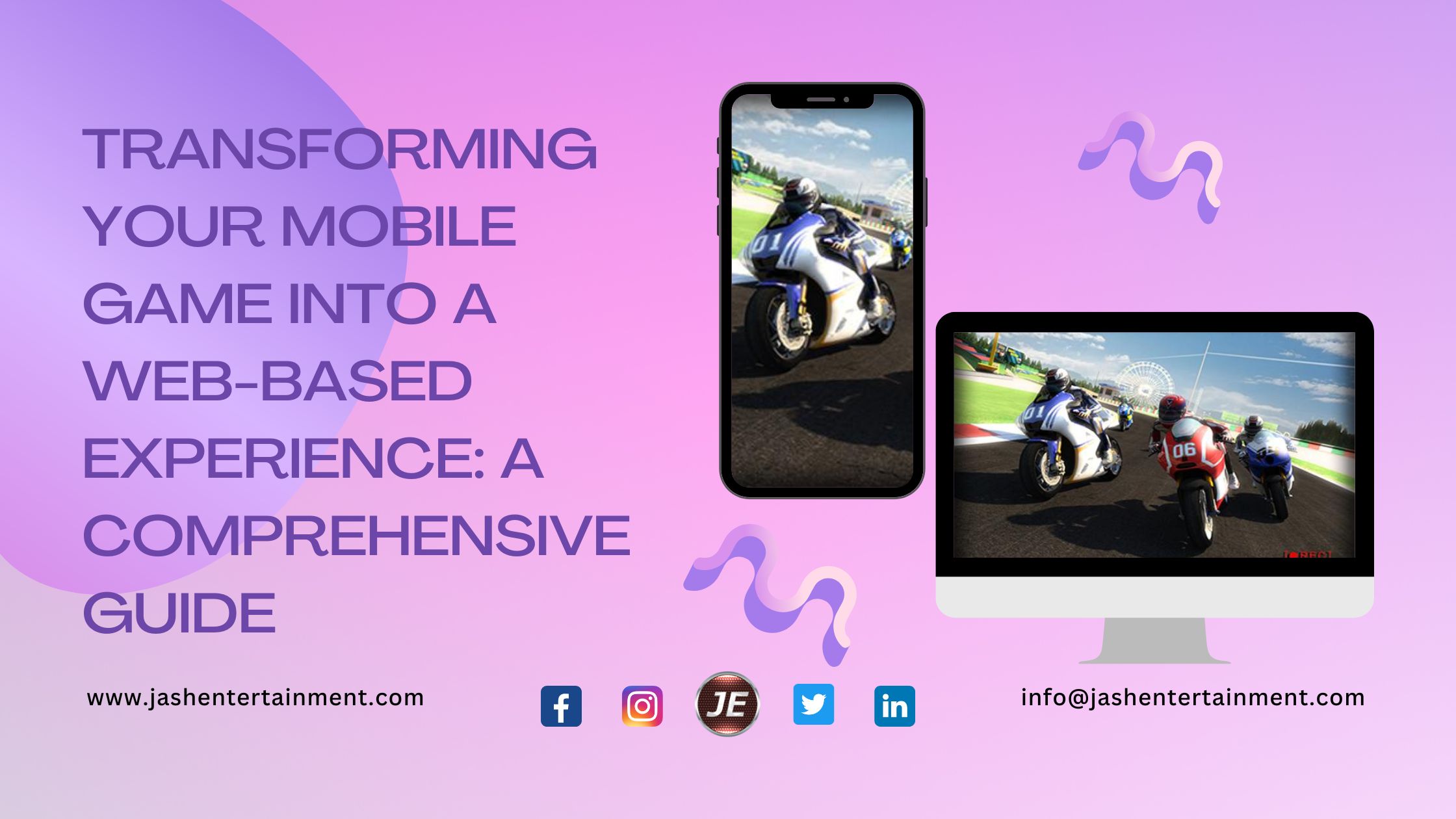
Transforming Your Mobile Game into a Web-Based Experience: A Comprehensive Guide
In today's dynamic gaming landscape, expanding your audience is key to success. While mobile gaming dominates, extending your game to web platforms can open new doors and attract a diverse player base. In this comprehensive guide, we'll explore the process of converting your mobile game into a web-based one, covering planning, development, optimization, and launch.
1. Understanding the Transition:
Transitioning from mobile to web requires considering various factors. Web browsers have different capabilities and limitations compared to mobile platforms, influencing design, user interface, and performance adjustments. Additionally, monetization strategies may need tweaking for web audiences.
2. Planning and Preparation:
Before conversion, research your target audience and market trends. Assess your game's suitability for web platforms based on genre, mechanics, and complexity. Develop a roadmap detailing timelines, budgets, and resources to streamline development efforts.
3. Choosing Tools and Technologies:
Select tools like Unity or Phaser for cross-platform game development. Utilize HTML5, CSS, and JavaScript for web-based game development to ensure compatibility across browsers and devices.
Adapting Gameplay and Controls:
Optimize gameplay and controls for web environments, considering the shift from touch to mouse and keyboard inputs. Modify UI elements to fit larger screens and diverse aspect ratios for a seamless experience.
4. Optimizing Performance and Graphics:
Enhance game performance and graphics for the web. Employ efficient rendering techniques, asset compression, and resource management to minimize load times and bandwidth usage while maintaining responsiveness.
5. Addressing Monetization:
Adjust monetization strategies for web platforms, exploring ad placements, in-game purchases, subscriptions, and sponsorships tailored to web audiences. Balance revenue goals with player experience.
6. Testing and Quality Assurance:
Thoroughly test the web version across browsers, devices, and resolutions to identify and fix compatibility issues, performance bottlenecks, and gameplay inconsistencies. Gather feedback through alpha and beta testing.
7. Launch and Marketing:
Plan a strategic launch campaign utilizing social media, gaming forums, press releases, and influencer partnerships to generate interest. Analyze post-launch metrics to track user engagement, retention, and monetization.
8. Community Engagement and Updates:
Engage with players to gather feedback and implement updates and expansions. Encourage user-generated content, tournaments, and events to foster a vibrant community.
9. Conclusion:
Converting your mobile game to a web-based one presents exciting growth opportunities. By following this guide and leveraging the right tools and strategies, you can successfully adapt your game to web platforms and reach a broader audience.
Embrace the challenge, unleash your creativity, and embark on the journey of transforming your mobile game into a captivating web-based experience that resonates with players worldwide.
Jash Entertainment - Empowering Game developers to Thrive in Web-Based Gaming.
Unlock the potential of your mobile game by transforming it into a captivating web-based experience with our comprehensive guide.